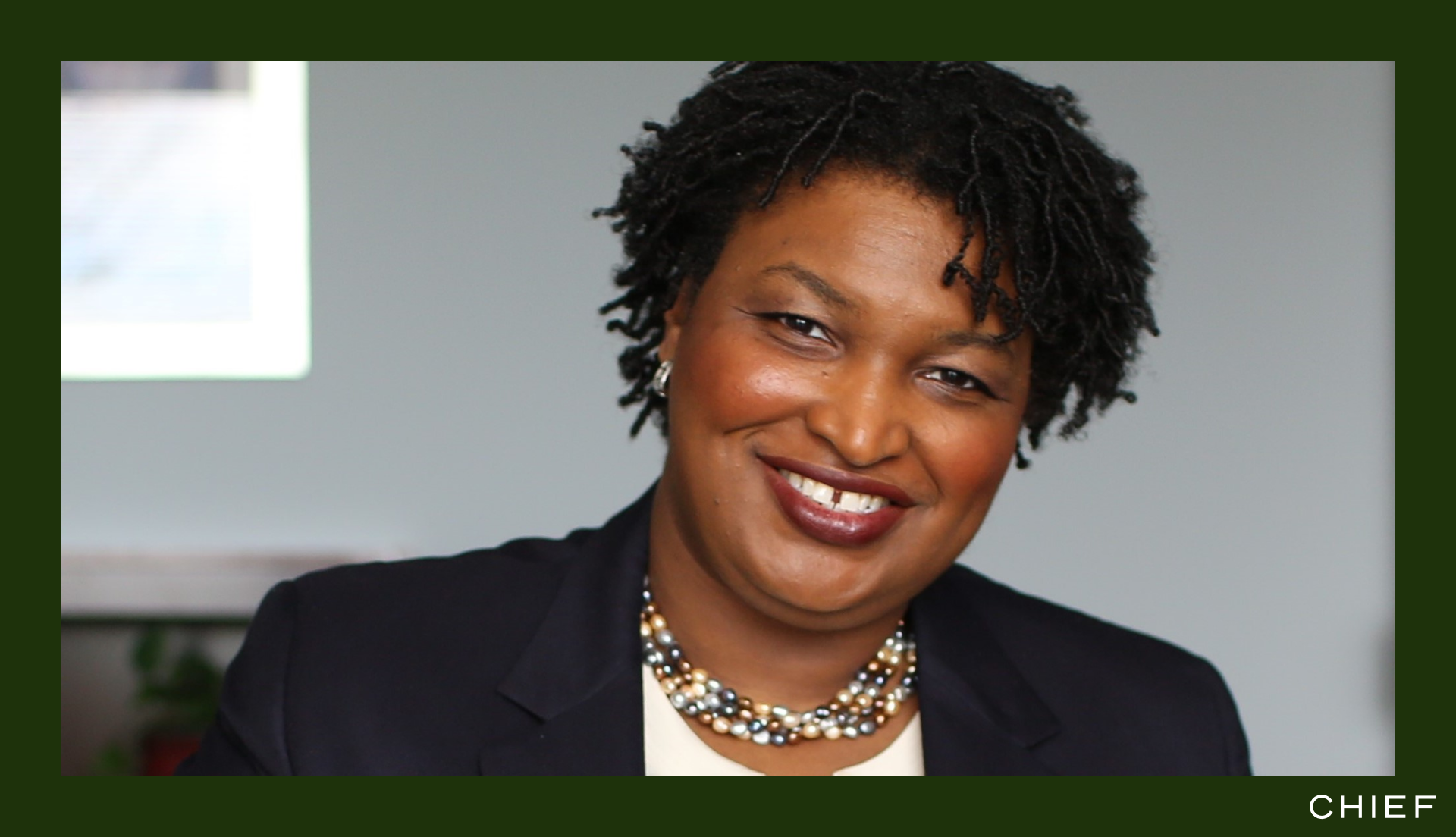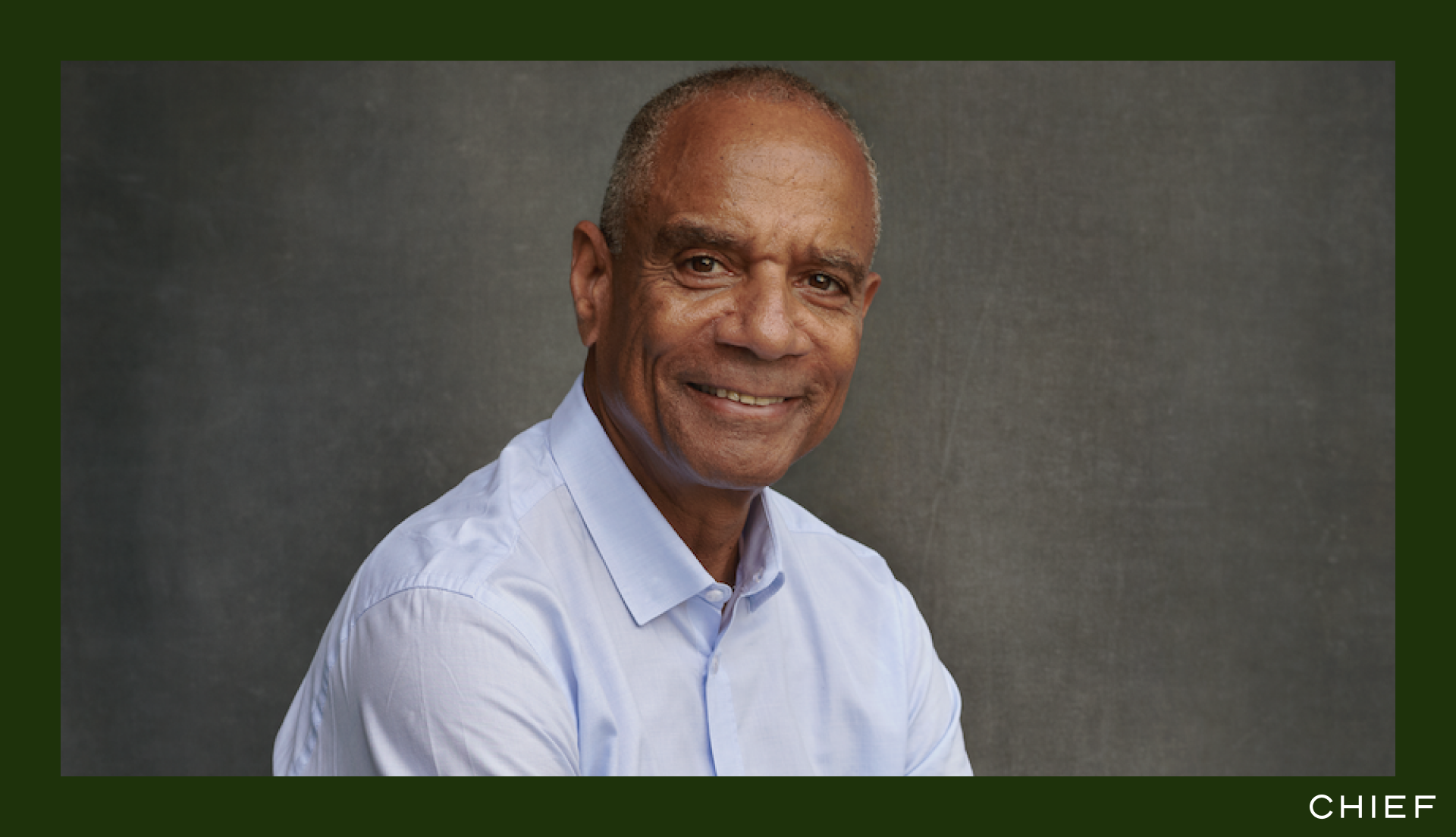A powerhouse of an organizer and political leader, Stacey Abrams knows exactly what it takes to turn a commitment to social justice into reality. Stacey's tireless work and that of her organization, Fair Fight, has been heralded as the driving force behind record-setting levels of voter turnout this past election season — which flipped both Georgia and the Senate. It was an honor and a privilege to host the Nobel Peace Prize nominee for a conversation with Chief Member Dorri McWhorter, Chief Executive Officer at YWCA Metropolitan Chicago.
"I was not entitled to victory as a candidate — but we are all entitled to the right to vote."
On the day of the election, we heard stories from around the state about long lines, missing power cords from machines, the rejection of absentee ballots, signature mismatches, people being told they didn't look like voters. So despite my deep disappointment, my primary obligation was to tell people, 'I don't know who's going to win, but I'm going to ensure that every vote counts.'
We spent the next ten days calling, door knocking, and gathering stories. We filed four lawsuits, and we won every single one of them. But by the end, I knew I wasn't going to be governor. I knew that the laws of Georgia permitted my opponent to be the referee, the quarterback, and the scorekeeper all in one. So I started working to ensure that this wouldn't happen to anyone else, and that's how Fair Fight was born.
In that ten-day period, I went through the seven stages of grief. Anger was my favorite, and the one I kept coming back to. And then I started plotting, which is a stage of grief they don't tell you about. Bargaining is trying to convince the world not to do this to you, but plotting is figuring out how to fix the world and make it what you need it to be.
The goal of the documentary All In: The Fight for Democracy was to make people understand that the voter suppression that happened in 2018 in Georgia happens across the country. And it has been happening since the inception of our nation. I also wanted the film to be a toolkit for how we push back and reclaim our power. My hope is that everyone who watches it realizes that I was not entitled to victory as a candidate — but that we are all entitled to the right to vote.
"The minute you start to believe your own hype, you start to forget your responsibilities."
I realize and appreciate that I serve as a focal point for hope and for proof that something better can happen. I know that it's not really about me, and that I'm a stand-in for the need to believe that there is someone doing this work. It's very humbling, but I don't internalize it so much that I believe I am the things people say. Because the minute you start to believe your own hype, you start to forget your responsibilities.
The challenge with idolization is that idols fall, and the work that we're doing can't suffer because we're human. The thing I love about biographies is that you find out that even the greatest people have broken places. I'm going to make a mistake — and that can't diminish the importance of the work of fighting for our democracy.
I want to make sure people know I have a partner in this work, Lauren Groh-Wargo, who runs Fair Fight day to day. I also have an extraordinary team who helped get millions of people counted — people who the Trump administration attempted to erase from the narrative of America.
"First of all, I'm asking you to run."
A number of studies have found that women tend to run for office only when they're asked. So first of all, I'm asking you to run. But please believe that when you are called to action, you are enough. We tend to be so hypercritical that our self-evaluation is always about what we're not. Instead, we have to evaluate ourselves in a way where we say, 'here are the things I've got — the things that if I polish and hone, can be these extraordinary things.' That's the first piece.
The second piece is, we have to stop mistaking self-effacement for humility. Humility says 'I am not the only one who can do this,' while self-effacement says 'I didn’t do it, it wasn’t really me.' I do not do self-effacement, because if I'm willing to dismiss me, then why should anyone else take me seriously?
Women also tend to believe that they have to be credentialed — that they have to know everything before they can do anything. And that's not true. I've met men. We've got to stop waiting to be perfect, and be willing to be curious. The best political leaders are those who are curious about where the problems are and how they can fix them. And to get women of color into the pipeline, we have to remind ourselves that we can start serving right where we are — we don’t have to wait until we're ready to run for the biggest position. Sometimes it's starting at the smallest place that gets us on the trajectory.
"I’m so proud that Chief exists."
I'm so proud that Chief exists, because the power that women have when we harness our collective energies is transformative. When women believe in their capacity for change — in one common power over all of our differences — our achievement is extraordinary. That Chief exists to convene women to understand how to harness that power — that is an amazing thing.

